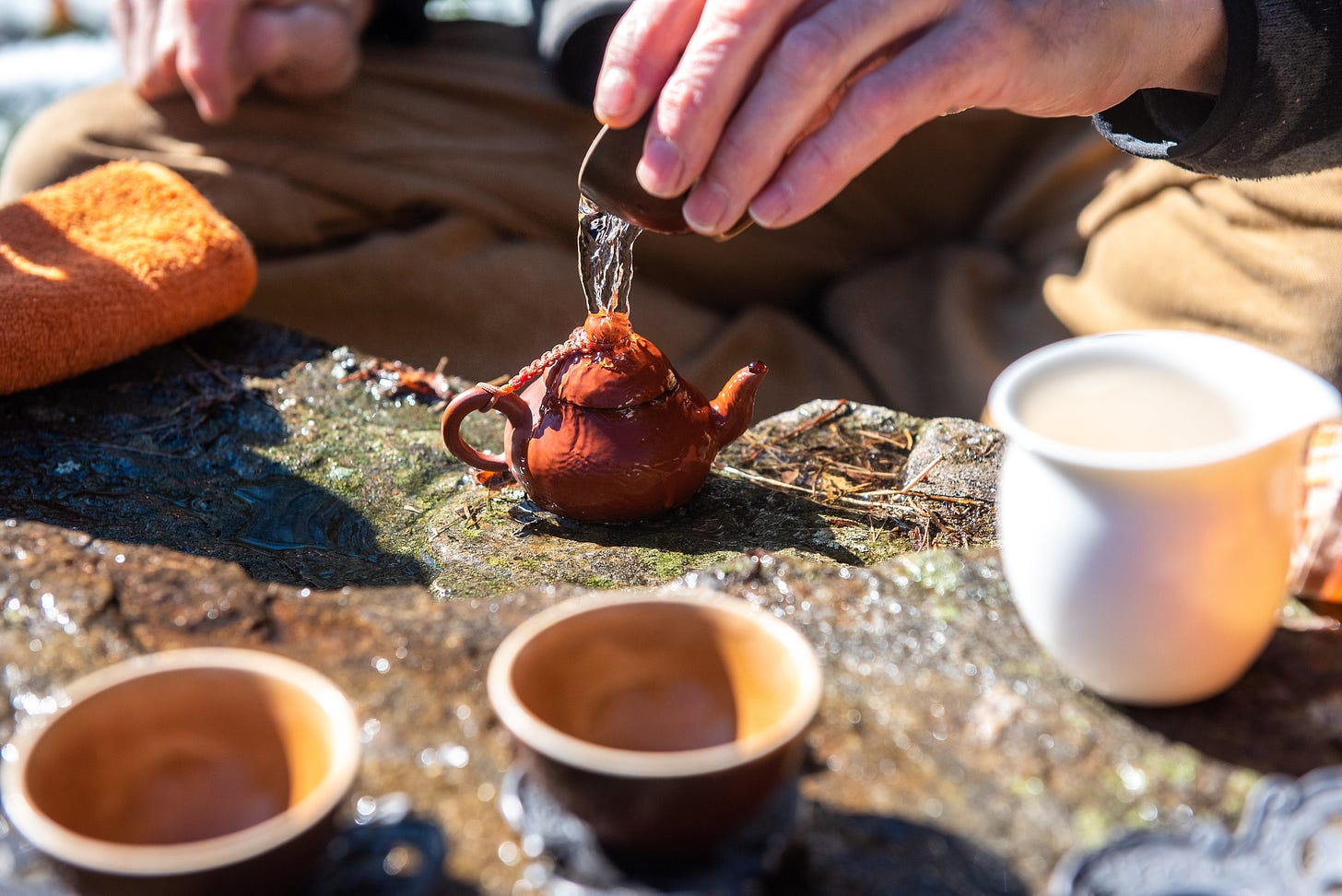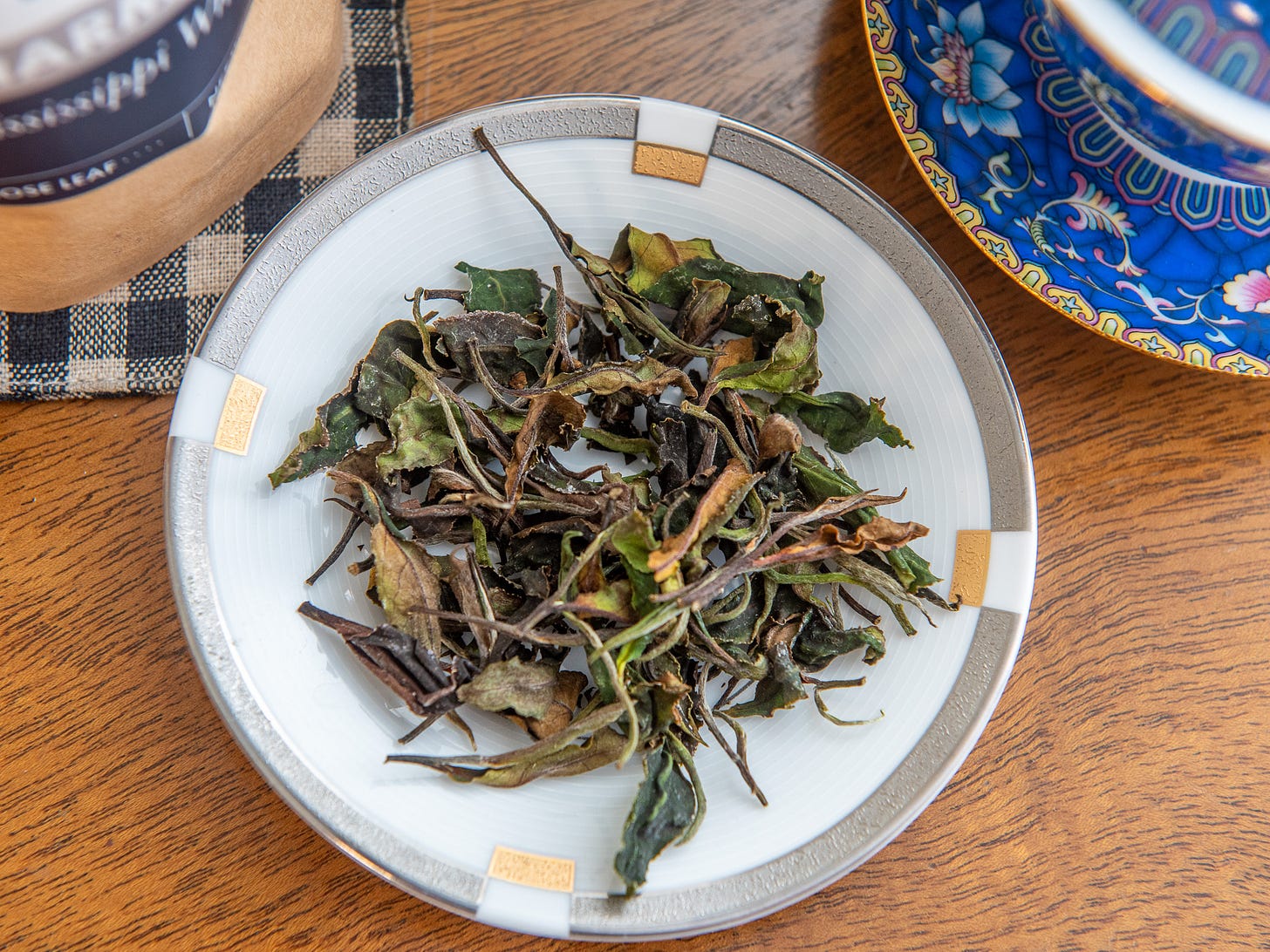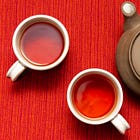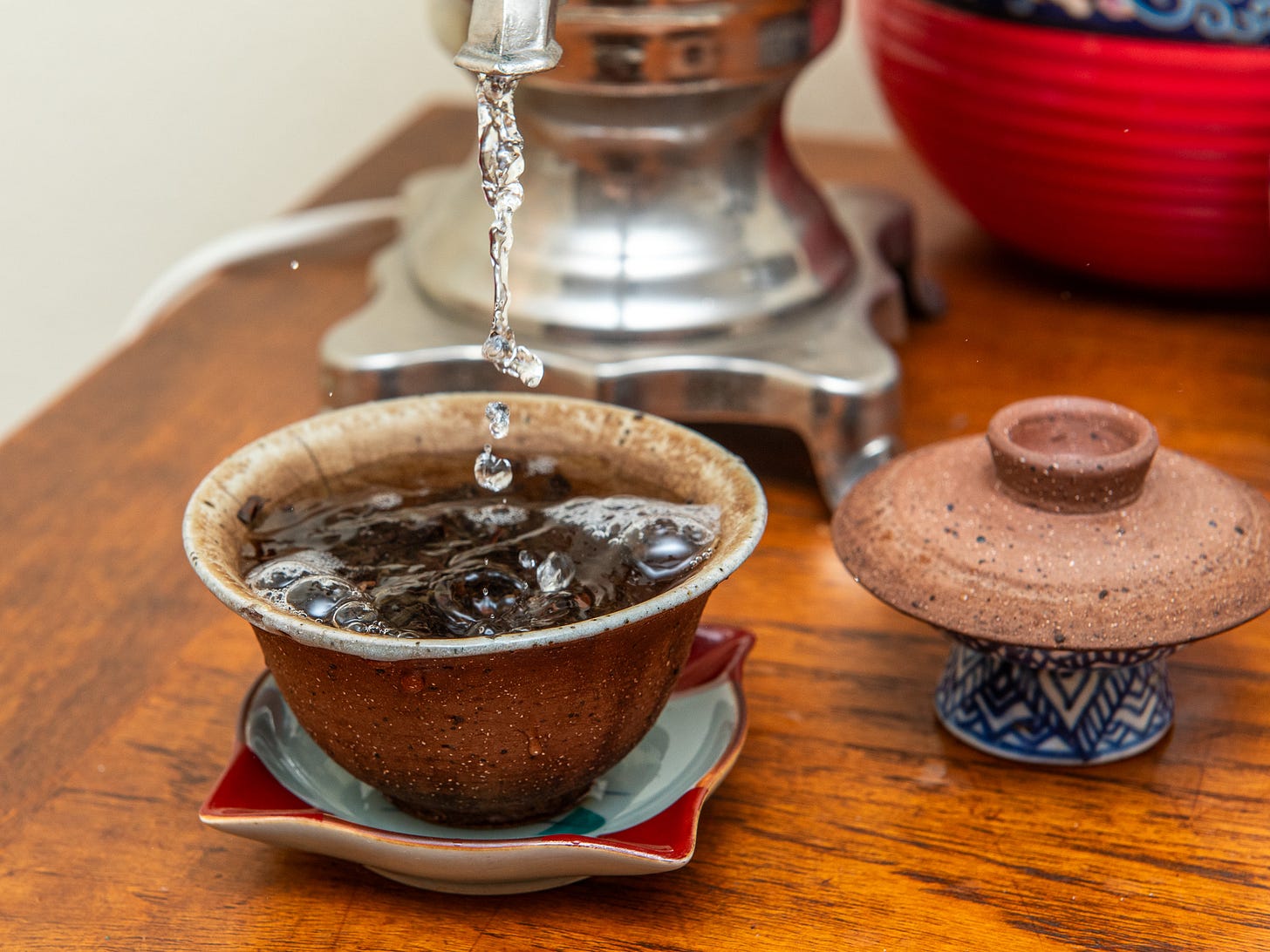Leafhopper’s top teas of 2024
Our brews in review.
When judges at tea competitions rate teas, they usually brew them in a standardized method called cupping. Each batch is prepared with the same ratio of leaf to water at the same temperature for the same amount of time. The method isn’t about steeping the best cup of tea, but to stress test the leaves: to see what strengths and flaws reveal themselves on a level playing field. I am glad not to be a tea judge. Cupping tea this way is an endurance trial, and even if you spit as you go, the caffeine buildup and palate fatigue make for an overstimulating experience.
Now that I’ve described what it was like to live through 2024 (ba-dum-tum), I want to talk about the standout brews I’ve enjoyed this year. These have not been evaluated through the cupping method. I haven’t compared them against similar batches; for some, no similar batches exist. There are so many factors that make a tea stick with you. The beauty of this drink is all the ways it can mess with you besides the taste. I’d love to hear your thoughts on the cups you loved this year that you’re still thinking about. Share them in the comments, or by email to max.falkowitz@gmail.com, and I’ll include a few in next week’s Leafhopper edition.
Through the end of 2024, any new paid subscription to Leafhopper will grant you a free subscription you can give to someone else. Sign up for a monthly plan and you’ll get a free 1-month subscription. Sign up for an annual plan and you’ll get a free 1-year subscription. Simply email me at max.falkowitz@gmail.com when you subscribe to tell me who should receive your gift.
Mississippi white tea
In the past I’ve treated American-grown tea as a curiosity more than a product of a serious tea region. But the meticulous shaping and gentle oxidation of this supple white tea from Longleaf Tea Company have won me over. In our interview, tea maker Thomas Steinwinder told me that some other growers in the area are thinking about planting tea. I’m excited to see how this literal mom-and-pop operation in a former timber pine field will mature over the next few years.
A Rwandan daily drinker
When scrummaging around for a bold cup to start my day, I often land on this all-around great orthodox black tea from Rwanda’s organic Rukeri Estate, sold by Camellia Sinensis. It’s important to have reliable teas you can fall back on, especially at a gentle price like this one. Everything about it just hits—the layered fruity flavor, grippy texture, and surprising notes of tobacco and black pepper. I love that it doesn’t turn too bitter if I forget about the leaves in my pot. A serious black tea for handling serious morning matters.
Tea as old as me
I’m grateful for the sips of this 1980s liu bao from Tea Habitat that a friend made for me from his stash. Liu bao is a fermented and aged style that warms the heart on rainy days. Quality aged versions are few and far between, so I consider the $2.41 per gram price of this one reasonable if you want to experience what good aged tea can do. I say “do” because it’s more about the feeling than the flavor, but the flavor of this one was abundant, clean, and still vibrant after decades of storage. A tea I could drink every day and never get bored of.









